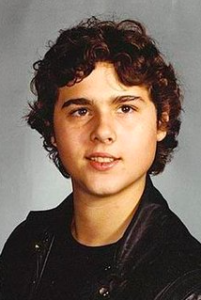THIS SERIES DEALS WITH SEXUAL ABUSE. PLEASE READ WITH CAUTION.
AN INTRODUCTION AND FURTHER DISCLAIMERS
MAY BE FOUND HERE.
Lord Jesus Christ, light of the world, who enlighteneth every man: We beseech thee, illuminate thy servants upon earth, lest we walk in darkness; that, at thy glorious appearing, we may rejoice in thy presence evermore; who livest and reignest with the Father and the Holy Ghost, one God, world without end. Amen.
Previous installments: The Victims; The Monster and the Mirror; The Bishops’ Gambit.
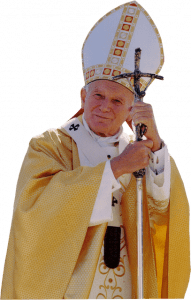
How Do I Even Do This …
Pope John Paul II has become a lightning rod in discussions of abuse. He protected and promoted multiple abusers, including Theodore McCarrick and the still more infamous Marcial Maciel Degollado. Right after his death, crowds in Rome were chanting “Santo subito,” which roughly means “Make him a saint and do it now!” Today, people are attacking his canonization, and those attacks have serious theological implications as well as social and political ones.
Writing a post like this is delicate work. I’m a layman with his own flagrant vices, talking about a Pope whose decisions wounded hundreds if not thousands of people. I’m not sure I know how to do this without being appallingly presumptuous—whether for or against him. May God assist me as I write. If I screw up, I can only ask forgiveness and hope I don’t cause anyone further injury or pain.
Let’s get to it.
“He Looked for Righteousness, But Behold, a Cry”
One victim claims he told His Holiness as early as 1988 about McCarrick abusing him. (As far as I saw, this is the only evidence the Pope would have received before the year 2000.) The McCarrick report says his claim is not corroborated. This may come across as (and be) mere ass-covering; but many other pieces of evidence in the report are supported by other testimony, so it is a little unusual in context.
There are a few possible explanations. One is that it’s true, and the Pope just chose to disbelieve or ignore the victim. I’m sorry to say several of His Holiness’ other decisions make this plausible. The case of Marcial Maciel Degollado, founder of the Legion of Christ, forms a hideous parallel. The Pope, who trusted him, halted an investigation into him for sexual misconduct in 1998. However, Cardinal Ratzinger, later Pope Benedict XVI, saw through Maciel. After John Paul II’s death, Benedict reopened the investigation. Maciel was indeed convicted of carrying on affairs with both sexes, including fathering at least one child. The Church defrocked him, and stripped the Legion of all association with him and his teachings.
Secondly, the Pope may have misunderstood. This may sound like grasping at straws; but talking about sexual abuse can be really difficult, and it’s not always easy to make yourself clear. The Pope may have thought he was talking about someone else, or not recognized that he was talking about abuse. It’s hard to say without a transcript.
Another explanation, which partly overlaps with the second, is that the victim misremembered the event somehow. I’m extremely skeptical of this possibility. I mention it at all because there’s a chance it’s true; but “Telling the Pope about the Archbishop who abused me” is the sort of thing that would stick in one’s mind.

There may be other interpretations I’m not seeing. I lean toward the second interpretation, considering what else we know about His Holiness. But I really can’t be sure. Trusting people’s affect and position is exactly what got us into this mess. So, I don’t think the first and worst interpretation here is proven, but I for one cannot rule it out.
Bishop Takes Pawn
Fast forward to the summer of 2000. Archbishop Montalvo sums up his investigation into McCarrick to Cardinal Re via letter: “according to the information at hand, the accusations against the prelate are neither definitely proven nor completely groundless. … [I]t would be imprudent to consider Archbishop McCarrick for more important responsibilities in the Church.” Little if any of the evidence against McCarrick (itself largely falsified) actually reaches the Vatican. Still, His Holiness agrees with Re to accept Montalvo’s verdict—at first.
But why not call for a more complete investigation? The Pope knew and liked McCarrick, an intelligent, popular, successful man. Several people have pointed out that the Pope had experience with smear campaigns against clergy in Communist Poland; he might naturally assume something similar was happening here. Furthermore, he was by this time eighty years old, and probably ill. The very next year, a doctor diagnosed him with Parkinson’s disease, which can affect cognition and judgment. Any or all of these factors may have played a role both in this and in what followed.
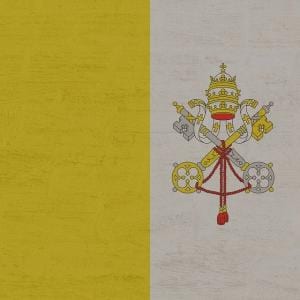
At this juncture, Archbishop McCarrick wrote a letter to the Pope’s secretary. Without trying to sound too admiring, it was a master-stroke of deceit. He may have heard or guessed that he was being weighed, and perhaps found wanting, for the Archdiocese of Washington. Or he may only have heard that the rumors about him had reached the Pope’s ears. In any case, he made his play.
McCarrick’s Letter
A few months ago I wrote to you when certain friends of mine seemed to be promoting my transfer to a more prestigious See [this is presumably in reference to Chicago, though this earlier letter was not found in the investigation of the Vatican Secretariat of State]. At that time I wrote to assure you that I am very peaceful to stay where I am or to do whatever the Holy Father would ask. Today I write because of the confidence and trust I have in you … I have heard that, before his death, Cardinal O’Connor wrote to the Holy Father a letter which deeply attacked my life as a bishop … If this is true then it is a very grave accusation and leaves me bewildered.
I know that the Cardinal did not want me as his successor … Never, in all his years of service in New York, did Cardinal O’Connor ever approach me with criticisms or accusations such as are apparently contained in his letter to His Holiness. Your Excellency, sure I have made mistakes and may have sometimes lacked in prudence, but in the seventy years of my life, I have never had sexual relations with any person, male or female, young or old, cleric or lay, nor have I ever abused another person …
Some years ago, a series of anonymous letters accusing me of improper conduct were sent to the Cardinals in the United States. I immediately shared them with the Apostolic Nuncio and brought them openly to the attention of our Archdiocese Presbyteral Council—so anxious I was to be as open to my priests as possible. …
I had not thought to write you about this terrible complaint and to leave the matter in the Hands of God Who is the Judge of all things. However, I discussed it fully with my Confessor and he advised me to at least contact you … In case Cardinal O’Connor’s criticism of me involved others, it is good that I write lest the reputation of anyone else be damaged unjustly. On the other hand, if His Holiness were to have lost confidence in me as a bishop, I would willingly resign my diocese … The most hurtful part of the matter for me is that it would sadden the Holy Father and let him feel that I had let him down. Now that I have had my chance to write to you, I will let the Lord do what He will and I will be at peace.
… May the Lord use this present cross to make me a better priest.
The rehearsals of humility here follow the finest models of Catholic spirituality; signs of ambition are diluted to almost nothing. Moreover, the statement “I have never had sexual relations with any person” is bold, unqualified, and disprovable. That actually makes it a pretty strong lie: most manipulators are either too afraid of the truth to attempt such a thing, or too shortsighted to pull it off. That makes this sound more like the boldness of real innocence. Especially in conjunction with his truthful statement about his conduct over the anonymous letters. A letter like this would almost certainly lull any ordinary misgivings.
It worked. The Pope reversed his previous decision. In the autumn of 2000, McCarrick became the fifth Archbishop of Washington.
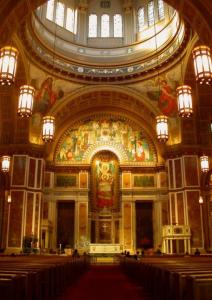
Interior of St. Matthew’s Cathedral, seat of the Archdiocese of Washington (source).
How Much Is Pope John Paul II to Blame?
His Holiness’ error of judgment here does seem pretty natural. So am I absolving John Paul II’s memory? I don’t think so. He reacted normally to the manipulation of a talented liar. But here’s the thing: a normal response is not always an adequate response. It’s a bishop’s job to go above and beyond, to make sure the people he trusts are beyond reproach. Regardless of why, His Holiness didn’t do that. And mistakes made at this level are disastrous.
This may give support to the idea that Popes, like diocesan bishops, should have a standard age of retirement. I was hostile to this idea when I first heard of it—the papacy isn’t a job, after all; it’s a sacred office. But the brute fact is, it’s a sacred office that takes a lot of mental work. The older a person gets, the harder that work is on them. As shocking as Pope Benedict XVI’s abdication1 was, maybe it’s a path more Popes should follow.
Considering the distorted information the Pope was working from, his possible cognitive problems at the time, and McCarrick’s skill at lying, I don’t entirely blame him for this terrible and destructive lapse of judgment. But I think he still bears some blame for it.
EDIT: On rereading, this post as a whole—and this section in particular—comes across much more like a defense of John Paul II than I intended. I was pretty angry while I was writing it, so I was worried I’d be presumptuously harsh, and I may have overcorrected. I rarely delete things I’ve posted: if I’ve embarrassed myself, I feel I ought to live with the consequences (and issue a correction, of course). But I’d like to emphasize that, no matter how understandable his errors were, they were disastrous. Hundreds if not thousands of people were abused because of his failures. Traumas this severe can contribute to everything from depression to self-injury to addiction to suicide. To say nothing of the irony that, by trying so hard to hush up scandal, in both the popular and the theological sense, the name of the Church has become a hissing and a byword.
Is John Paul II Really a Saint?
With this, we are getting way above my pay grade. Like I said in my intro, I’m not a professional theologian or a canon lawyer. I’m a layman with internet access. I only know so much, and I’ll try to be clear when I’m unsure about something.
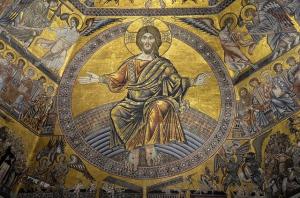
As far as I know right now, canonizations are infallible—until and unless I find out I’m wrong about that, I accept that he’s a saint. (However, I can’t offer a source for that, so I’m not positive.) After giving it some thought, I did decide not to refer to him as Saint John Paul II in the course of this post; I made that decision not because I’m uncertain, but because I didn’t want any readers who were hurt by his actions to flinch at every reference to him. Some people might find it disrespectful not to use his title, but honestly, if he’s in heaven with God right now, I really doubt he cares.
I don’t find it hard to believe that he’s a saint who had catastrophic flaws. Every saint, except the Mother of God, was also a sinner. And there are saints I’m much more attached to whose flaws were a lot worse than his; St Peter denied Christ during his Passion. Still, I could never find it in my heart to blame someone who did find this hard to believe. I’m trying to be as strictly faithful to the facts as I can manage—and to judge them neither more generously nor more severely than I would in circumstances where I didn’t have a conclusion that I hoped to draw.
Now, I’m not sure about this, but I think you could argue that his canonization was invalid. This report wasn’t out when Pope Benedict XVI declared John Paul II a saint. Hence, you could maybe claim that certain relevant facts about his life weren’t available, and therefore Benedict couldn’t make a valid decision to canonize him.
To be clear, I’m not saying we should “repeal” John Paul II’s sainthood. That isn’t how it works. Judging from what little I know, canonizations are like marriages: if there was a flaw in the original process, that might (might) mean it wasn’t valid in the first place; if not, it stands. As for how I personally feel … Dawn Eden Goldstein put it very well on Twitter a couple weeks ago:
A weird thing about being Catholic is that today’s report doesn’t change my belief that Pope John Paul II has infallibly been declared a saint.
It does, however, change the way I ask his intercession.
I now pray:
Dear St. John Paul II,
You broke it. You fix it.
Further installments: Pope Benedict XVI; Pope Francis; The Venom of Viganò; Den of Thieves; Quo Vadis
1Speaking of the papacy not being a job, abdication is a more proper term than resignation. The Pope is a monarch: monarchs reign until they either die or abdicate. They’re not CEOs.




